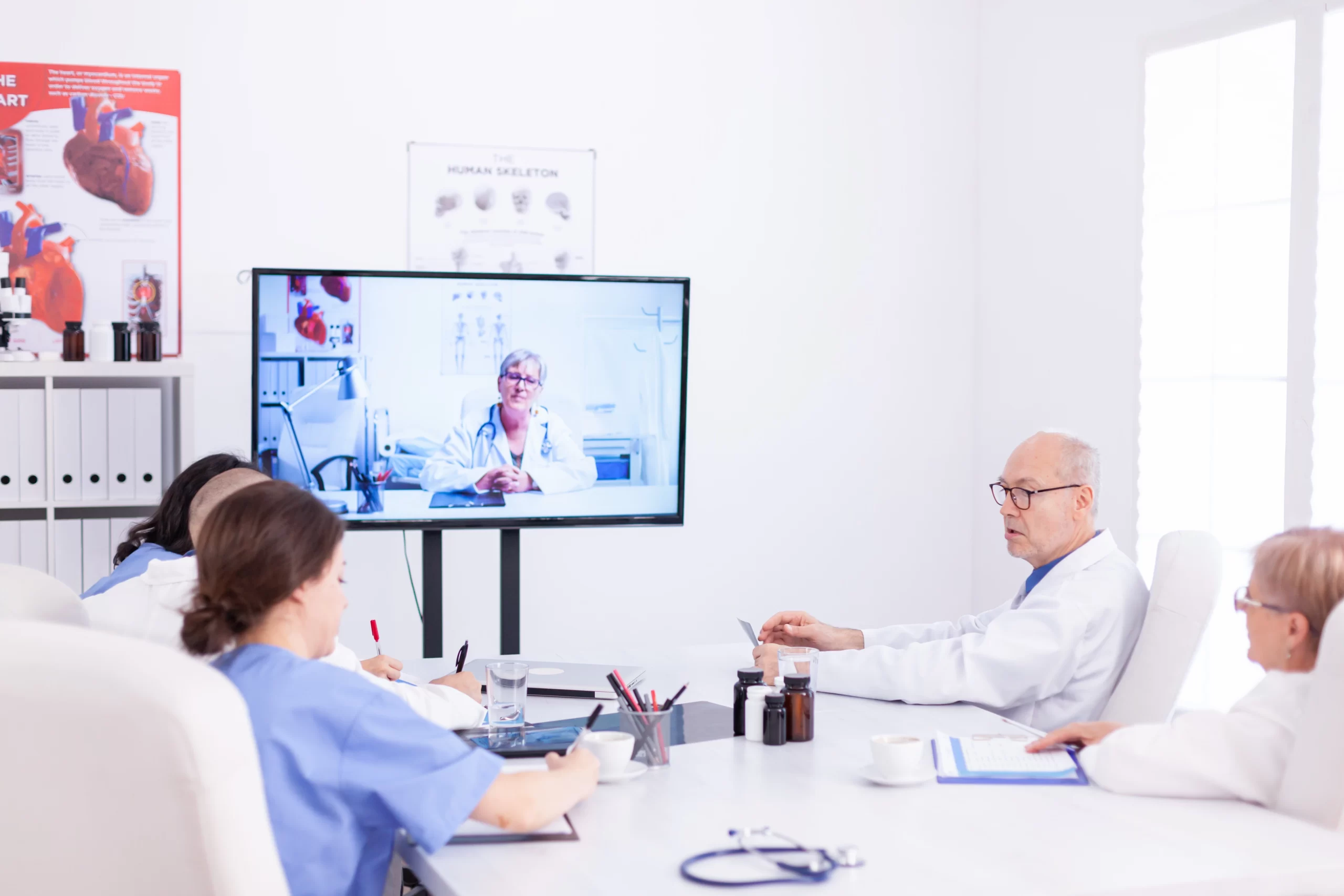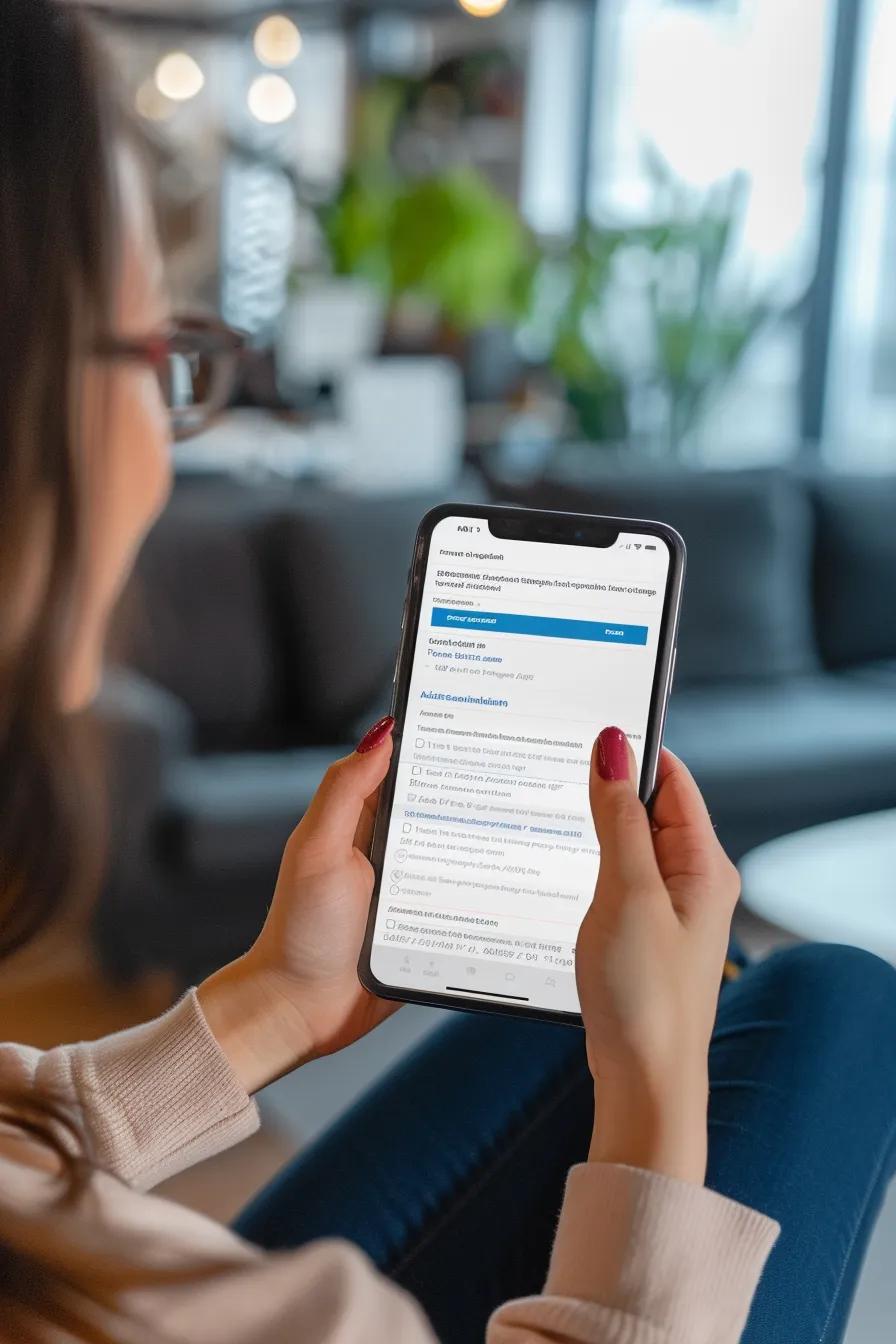Frequently Asked Questions
What is the role of analytics in a healthcare LMS?
The role of analytics in a healthcare LMS is crucial for enhancing educational outcomes. Analytics provide insights into learner engagement, progress, and performance, enabling educators to tailor training programs effectively. This data-driven approach supports compliance, identifies knowledge gaps, and fosters continuous improvement in healthcare education.
Looking for expert LMS guidance? Contact Markanyx to book a free consultation.
What features should a healthcare LMS have?
The essential features a healthcare LMS should have include customizable learning paths, compliance tracking, mobile accessibility, and robust reporting tools. Additionally, it should support collaborative learning and integrate with existing healthcare systems to enhance training and continuous education for medical professionals.
Looking for expert LMS guidance? Contact Markanyx to book a free consultation.
Can an LMS integrate with existing healthcare systems and software?
An LMS can seamlessly integrate with existing healthcare systems and software. This integration enhances data sharing, streamlines workflows, and ensures compliance with regulatory standards. At Markanyx™, we specialize in customizing and deploying LMS solutions, including Moodle and Totara, to meet the specific needs of healthcare organizations. Our expertise ensures that your LMS works harmoniously with your current systems, facilitating a more efficient learning environment. Looking for expert LMS guidance? Contact Markanyx to book a free consultation.
How does a healthcare LMS support compliance training?
A healthcare LMS supports compliance training by providing a structured platform for delivering mandatory training modules, tracking progress, and ensuring that medical professionals meet regulatory standards. With features like automated reminders and reporting tools, it simplifies compliance management and enhances accountability. Markanyx™ specializes in implementing and optimizing LMS solutions tailored to the healthcare sector, ensuring your team stays compliant and informed. Looking for expert LMS guidance? Contact Markanyx to book a free consultation.
What is the role of an LMS in healthcare compliance training?
The role of an LMS in healthcare compliance training is crucial for ensuring that medical professionals stay informed about regulations and standards. An effective LMS, like Moodle, streamlines the training process, providing accessible resources and tracking progress to ensure compliance. It helps organizations maintain high standards of care by facilitating ongoing education and assessment, ultimately fostering a culture of accountability and excellence in healthcare. Looking for expert LMS guidance? Contact Markanyx to book a free consultation.
What are the benefits of mobile healthcare LMS access?
The benefits of mobile healthcare LMS access include enhanced flexibility, allowing medical professionals to engage in training anytime and anywhere. This accessibility supports continuous learning, improves compliance with regulations, and fosters collaboration among healthcare teams, ultimately leading to better patient care.
Looking for expert LMS guidance? Contact Markanyx to book a free consultation.
How does a healthcare LMS support staff onboarding processes?
A healthcare LMS supports staff onboarding processes by providing a structured platform for training and compliance. It streamlines the onboarding experience through personalized learning paths, interactive modules, and progress tracking, ensuring that new staff acquire essential skills and knowledge efficiently. With features like assessments and collaborative tools, healthcare organizations can foster engagement and facilitate a smoother transition into their roles.
Looking for expert LMS guidance? Contact Markanyx to book a free consultation.
How does an LMS enhance healthcare leadership development programs?
An LMS enhances healthcare leadership development programs by providing a structured platform for personalized learning, skill assessments, and collaborative training. It facilitates continuous education and compliance, ensuring leaders are equipped with the latest knowledge and best practices for effective healthcare management.
Looking for expert LMS guidance? Contact Markanyx to book a free consultation.
What are the benefits of using a cloud-based healthcare LMS?
The benefits of using a cloud-based healthcare LMS include enhanced accessibility, scalability, and cost-effectiveness. Such systems allow healthcare professionals to access training materials anytime, anywhere, ensuring compliance and continuous learning while reducing infrastructure costs. Looking for expert LMS guidance? Contact Markanyx to book a free consultation.
How can a healthcare LMS improve patient engagement?
A healthcare LMS can significantly enhance patient engagement by providing tailored educational resources and interactive tools that empower patients in their healthcare journey. By facilitating access to personalized learning materials, tracking progress, and encouraging communication between healthcare providers and patients, an LMS fosters a more informed and active patient base. This engagement ultimately leads to better health outcomes and increased satisfaction.
Looking for expert LMS guidance? Contact Markanyx to book a free consultation.
How does LMS improve patient care in healthcare organizations?
The improvement of patient care in healthcare organizations through LMS involves enhanced training and compliance for medical professionals. By utilizing Moodle LMS, healthcare staff can access personalized learning paths and collaborative tools, ensuring they are well-equipped with the latest knowledge and skills to provide high-quality patient care. This continuous learning fosters a culture of excellence, directly benefiting patient outcomes.
Looking for expert LMS guidance? Contact Markanyx to book a free consultation.
What is the importance of mobile accessibility in a healthcare LMS?
The importance of mobile accessibility in a healthcare LMS lies in its ability to provide flexible learning opportunities for medical professionals. With mobile access, users can engage in training and compliance activities anytime and anywhere, enhancing their ability to stay updated and improve patient care. This accessibility supports continuous learning, essential in the fast-paced healthcare environment. By integrating mobile-friendly features, healthcare organizations can ensure that their staff can easily access vital educational resources, thus fostering a culture of lifelong learning and professional development.
Looking for expert LMS guidance? Contact Markanyx to book a free consultation.
What is the primary purpose of a healthcare LMS platform?
The primary purpose of a healthcare LMS platform is to facilitate the training and continuous education of medical professionals. By providing a centralized space for learning, compliance, and skill development, these platforms enhance healthcare education, ensuring that practitioners stay updated with the latest practices and regulations. This promotes improved patient care and overall healthcare excellence.
Looking for expert LMS guidance? Contact Markanyx to book a free consultation.
How does a healthcare LMS enhance staff performance?
A healthcare LMS enhances staff performance by providing tailored training programs that ensure medical professionals stay compliant and up-to-date with industry standards. This platform fosters continuous learning through personalized learning paths, interactive resources, and collaborative tools, ultimately leading to improved patient care and operational efficiency.
Looking for expert LMS guidance? Contact Markanyx to book a free consultation.
Can LMS integrate with existing healthcare systems?
The integration of an LMS with existing healthcare systems is not only possible but essential for seamless educational experiences. Markanyx™ specializes in customizing and implementing Moodle LMS to work in harmony with various healthcare technologies, ensuring that training, compliance, and continuous learning are efficiently managed. Our expertise allows us to tailor solutions that meet the unique needs of your organization, enhancing healthcare education and operational efficiency. Looking for expert LMS guidance? Contact Markanyx to book a free consultation.
How does an LMS improve patient outcomes in healthcare organizations?
An LMS enhances patient outcomes in healthcare organizations by providing continuous education and training for medical professionals. This ensures that staff are up-to-date with the latest best practices and compliance standards, leading to improved patient care and safety. By facilitating personalized learning paths and collaborative tools, an LMS empowers healthcare teams to deliver excellence in patient services.
Looking for expert LMS guidance? Contact Markanyx to book a free consultation.
Can LMS be used for healthcare provider training?
LMS can indeed be effectively utilized for healthcare provider training. By leveraging platforms like Moodle, healthcare organizations can create tailored training programs that enhance compliance, improve knowledge retention, and foster continuous professional development. These systems support interactive learning, assessments, and tracking, ensuring that healthcare providers stay updated with the latest practices and regulations.
Looking for expert LMS guidance? Contact Markanyx to book a free consultation.
What are the benefits of using LMS in healthcare education?
The benefits of using an LMS in healthcare education are significant. An LMS enhances training efficiency, ensures compliance with regulatory standards, and supports continuous professional development for medical professionals. It offers personalized learning paths, interactive content, and collaborative tools that foster engagement and knowledge retention. By implementing an LMS like Moodle, healthcare institutions can streamline educational processes and improve overall healthcare excellence.
Looking for expert LMS guidance? Contact Markanyx to book a free consultation.
How do healthcare LMS solutions improve patient outcomes?
Healthcare LMS solutions improve patient outcomes by providing medical professionals with enhanced training and continuous education. These systems ensure that healthcare staff stay updated on best practices, compliance, and new treatments, ultimately leading to better patient care and safety. By utilizing personalized learning paths and collaborative tools, LMS platforms foster a culture of excellence and accountability in healthcare settings.
Looking for expert LMS guidance? Contact Markanyx to book a free consultation.
How does an LMS support healthcare organizations with remote teams?
An LMS supports healthcare organizations with remote teams by providing a centralized platform for training, compliance, and continuous education. It enables seamless access to learning materials, fosters collaboration among team members, and ensures that all staff are up-to-date with the latest healthcare practices and regulations, regardless of their location. This flexibility enhances overall efficiency and effectiveness in delivering quality care. Looking for expert LMS guidance? Contact Markanyx to book a free consultation.
What features should a healthcare LMS have for employee training?
The essential features a healthcare LMS should have for employee training include customizable learning paths, compliance tracking, mobile accessibility, and robust reporting tools. Additionally, it should support collaborative learning through forums and social learning features, ensuring continuous education and engagement for healthcare professionals.
For optimal results, consider Markanyx’s expertise in implementing and customizing Moodle and Totara solutions tailored to the healthcare sector. Our certified partnership with Totara allows us to provide specialized support and deployment to enhance your training programs.
Looking for expert LMS guidance? Contact Markanyx to book a free consultation.
Can a healthcare LMS integrate with existing systems?
A healthcare LMS can seamlessly integrate with existing systems. This capability allows institutions to enhance their educational frameworks by connecting Moodle LMS with various software, such as electronic health records (EHR) and compliance tracking tools. With Markanyx's expertise in LMS implementation, we ensure a smooth integration process tailored to your specific needs. Our team is dedicated to providing customized solutions that enhance training and compliance for healthcare professionals. Looking for expert LMS guidance? Contact Markanyx to book a free consultation.
Can an LMS facilitate continuing education for healthcare professionals?
An LMS can effectively facilitate continuing education for healthcare professionals by providing flexible, accessible, and personalized learning experiences. With features like online courses, assessments, and tracking capabilities, healthcare workers can engage in ongoing training and compliance activities at their convenience. This fosters a culture of lifelong learning essential for maintaining high standards in patient care.
Looking for expert LMS guidance? Contact Markanyx to book a free consultation.
What is the role of LMS in healthcare professional development?
The role of an LMS in healthcare professional development is pivotal for enhancing training and compliance. It provides accessible, personalized learning experiences that foster continuous education, ensuring medical professionals stay updated with the latest practices and regulations. By integrating collaborative tools, an LMS like Moodle empowers healthcare workers to engage in lifelong learning, ultimately improving patient care and healthcare excellence.
Looking for expert LMS guidance? Contact Markanyx to book a free consultation.
How does LMS support compliance training in healthcare?
LMS supports compliance training in healthcare by providing a structured platform for delivering, tracking, and assessing mandatory training programs. With features like automated reminders, customizable content, and comprehensive reporting, healthcare organizations can ensure that all staff meet regulatory requirements efficiently. This streamlined approach enhances accountability and fosters a culture of continuous learning, crucial for maintaining high standards in patient care.
Looking for expert LMS guidance? Contact Markanyx to book a free consultation.
What features should a healthcare LMS system include?
The essential features of a healthcare LMS system should include user-friendly navigation, compliance tracking, customizable learning paths, collaborative tools, and robust reporting capabilities. These features ensure effective training, enhance engagement, and support continuous professional development for medical professionals.
Looking for expert LMS guidance? Contact Markanyx to book a free consultation.
What are the challenges of implementing LMS in healthcare?
The challenges of implementing an LMS in healthcare include resistance to change, integration with existing systems, ensuring user engagement, and compliance with regulatory standards. Additionally, training staff on new technology can be time-consuming and resource-intensive, impacting overall adoption. Effective strategies and support from experienced providers like Markanyx™ can help overcome these obstacles, ensuring a smooth transition to a more efficient learning environment.
Looking for expert LMS guidance? Contact Markanyx to book a free consultation.
Can LMS be used for continuing medical education?
The use of an LMS for continuing medical education is highly effective. LMS platforms, such as Moodle, provide a flexible and scalable solution for healthcare professionals to engage in ongoing training, compliance courses, and skill enhancement, ensuring they stay updated with the latest medical advancements. With features like personalized learning paths and interactive tools, an LMS supports lifelong learning and fosters excellence in healthcare education.
Looking for expert LMS guidance? Contact Markanyx to book a free consultation.
Can a healthcare LMS reduce medical errors?
A healthcare LMS can significantly reduce medical errors by providing comprehensive training and continuous education for healthcare professionals. By ensuring that staff are well-informed about protocols, best practices, and compliance standards, an LMS fosters a culture of safety and accountability. This enhanced knowledge base leads to improved decision-making and reduced risks in patient care.
Looking for expert LMS guidance? Contact Markanyx to book a free consultation.
How does LMS enhance patient safety education?
LMS enhances patient safety education by providing a structured, interactive learning environment that promotes standardized training and compliance. Through features like customizable courses, assessments, and real-time feedback, healthcare professionals can engage in continuous learning, ensuring they stay updated on best practices and protocols. This ultimately leads to improved patient outcomes and safety.
Looking for expert LMS guidance? Contact Markanyx to book a free consultation.





